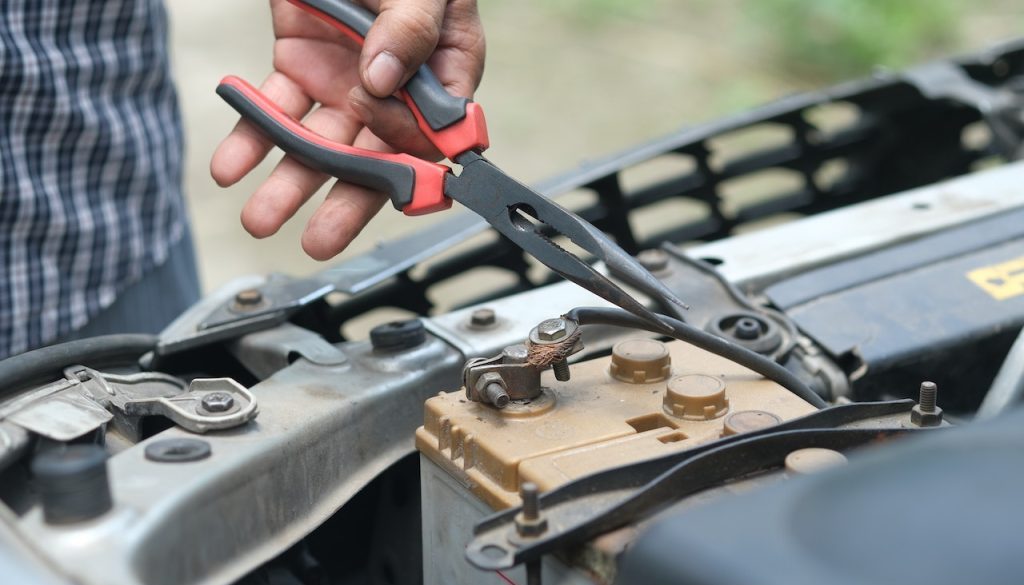There are roughly 80,000,000 cars on the roads today, which means there are also a lot of old car batteries in use. On average, you can expect your car battery to last 3-5 years; factors like how hard you drive, weather conditions (rain on a leaky battery doesn’t help), and other factors can reduce that lifespan.
As your battery ages, it will still function but won’t hold as much of a charge as it did when it was new. When this happens, your battery will “fail” in one of two ways it either won’t hold enough of a charge to start the car, or it won’t hold enough of a charge to work lights and other accessories. You see the pattern here — both the car and the car battery are reaching the end of their useful lives.
When this happens, you have two options, either buy a brand-new car battery, buy a used car battery, and then recycle the old one. Either way, you choose to go, you should know the proper method of disposal of your car batteries.
How to Safely Handle Old Car Batteries
Batteries are filled with toxic materials that can leach into the environment if not disposed of properly. To prevent this, you should take the following steps:
- Always wear protective gear when handling car batteries. This means gloves and eye protection, as well as long trousers.
- You should also ensure your work area is well-ventilated, so any fumes or liquids released by batteries don’t build up in your garage or home.
- Once you’ve removed the battery from your car, you can take it to any recycling facility where they will recycle it properly.
Just make sure that you don’t leave any batteries near children or pets because they can get burned if they touch them.
Where to Discard Dead Batteries
As we all know, batteries contain many chemicals that can be dangerous if they get into the wrong hands. This is why it’s important to dispose of dead car batteries properly, especially if they are leaking acid or other fluids.
You might be asking yourself where to discard dead batteries. You can take them to any recycling facility, but you should also check the recycling guidelines from your local authority.
Never throw your old batteries in the skips. Car batteries contain dangerous chemicals, including lead, mercury, and sulphuric acid, that can leak or explode if they come into contact with other materials.
If you have any questions about where you can dispose of dead batteries, contact your local recycling centre or local authority website for more information.
Why Do We Need to Recycle Them?
In a world where we are constantly trying to be more environmentally conscious, it can be difficult to know where to start. One of the most important things we can do is recycle our old car batteries.
By recycling your old car batteries, you will be contributing to the reduction of waste in landfills and the protection of our environment. This is because car batteries contain heavy metals such as lead, mercury, and cadmium which can contaminate soil and groundwater when disposed of improperly.
Additionally, by recycling your old car batteries, you will be helping keep these toxic materials out of the food chain through food production. These toxic materials can then enter the human body through drinking water or other sources, such as eating fish from contaminated lakes or rivers.
Finally, by recycling your old car batteries, you will be helping keep these toxic materials from being released into the air or into the ground, thus preventing any environmental damage.
Why Are You Not Allowed to Throw Them into a Skip?
Earlier in this article, we learned not to throw the batteries in the skips. But why? The reason is simple. Some people do not know that batteries contain hazardous materials that harm human health and the environment.
If you throw them in the skips, they will be taken by waste collection companies for disposal, however, , if not dealt with correctly, batteries can cause serious pollution problems for many years to come.
Lead is a highly toxic metal that can cause serious damage to your brain and other organs if you are exposed to it over time.
What Can Be the Impact of Improper Disposal of Car Battery?
Improper disposal of car batteries is dangerous because of the following chemicals that are used in the battery:
- Lead (Pb) – Lead is toxic to humans, animals and plants. Exposure to lead may damage the brain and kidneys and cause other serious health problems, including death. Lead is particularly harmful to pregnant women and children.
- Chromium (Cr) – Chromium is a metal that can cause cancer when inhaled or ingested by humans or animals. It also can cause skin irritations when touched by bare hands or exposed to open wounds on the skin.
- Cadmium (Cd) – Cadmium is a metal that causes kidney disease when inhaled or ingested by humans or animals over long periods. It can also cause lung cancer when inhaled or ingested by humans or animals over long periods.
As you can see, these are very harmful chemicals, and exposure to them can cause severe damage to your health. The best way to protect yourself from these chemicals is by avoiding them.
Conclusion
If you have a car battery that is old or near the end of its useful life, and you are considering buying a new one, be sure to recycle the old one. Whenever you replace a car battery you should always recycle the old one, to ensure that it is not able to leak toxic chemicals into the soil. And if you need to throw out your battery, never dispose of it in a skip.
Hire a skip for other non-hazardous materials and keep yourself and the environment safe. Enviro Skip Hire can do this for you, so call us today.




